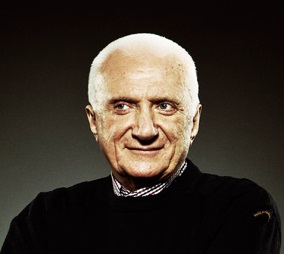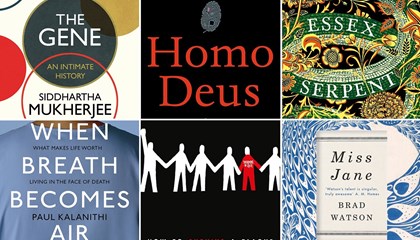 There can be no doubt, however, that religious conflicts hit the hardest, since they touch subconscious and deep inner chords within each person. It is also obvious that in the present global cultural and political struggle, increasingly efficacious and targeted use is being made of the “religious card.”
There can be no doubt, however, that religious conflicts hit the hardest, since they touch subconscious and deep inner chords within each person. It is also obvious that in the present global cultural and political struggle, increasingly efficacious and targeted use is being made of the “religious card.”
It stands to reason that the current military conflicts, which are frequently reaching truly tragic dimensions and leading to countless floods of forsaken refugees, require the immediate interference of all religious leaders. The entire civilized world is waiting with baited breath for them to join forces at the negotiation table. And only this form of dialogue will make it possible to regulate the chaotic situation the world is now facing. If this does not happen for whatever reason, we will be doomed to remember and relive the bitter lessons of history.
Let us recall the internal conflict in the Philippines in 1969, when the Muslim minority rose up under slogans of “overthrowing Philippine colonialism,” as well as the internal Arab conflicts of the 1960s, into which Lebanon was drawn. Lebanon is now a hub of anti-Israeli political organizations. In 1975-76, the constant clashes between Muslims and Christians escalated into a civil war. The Israeli-Palestinian conflict wrought havoc in the lives of many for long years. Nor should we forget the attempt to play the “Muslim card” in Russia’s Chechnya in the 1990s.
We are seeing increasing discrimination of certain religious groups, shown, among other things, by the predominance of representatives of certain confessions in political elites and leading to serious world conflicts. This was the case in Iraq, where the Arab Sunni minority has historically predominated, while most of the population is Shiite. The conflict between them led to the Shiite uprising in 1991, which also had a part to play in 2003 when interested parties helped to topple Saddam Hussein’s regime. But Shiite predominance is now provoking the terrorist activity of Sunni militants. The “Iraqi game” is still going on in the world, although its contours are changing. The opposition between the Sunnis and Shiites was named as one of the official reasons for the Iranian-Iraqi conflict of 1980-1981 over economic domination in the region. In twenty-eight Afro-Asian states, Islam is recognized as the state (or official) religion. And today religious terrorism continues to wreak havoc in many countries and continents—Syria, Iraq, Libya, Yemen, Afghanistan, Nigeria, Tibet, and Sudan, which is practically half the world.
Religious conflicts are becoming increasingly violent in Europe as well. The Catholic-Protestant Troubles in Northern Ireland now ebb, now rise again with renewed violence. The opposition between the Serbs and Croatians showed that ethnic separation based exclusively on the religious principle is possible even between ethnically related communities. We can also talk about a similar type of conflict in Ukraine (the Uniates against the Orthodox Christians).
Islamic fundamentalism is understood as a political movement, whereby religious principles are used to put pressure on state structures. “The soldiers of Islam” have been waging their war in Algeria and Egypt, in the Philippines and Indonesia, in America and Europe. The practice of Islamic radicals relies on effective and immediate action, while the phenomenon of terrorist organizations (as a lever of pressure on Saudi Arabia and Iran) must also show the whole world the power of supposedly true Muslims who are establishing a kind of futuristic-archaic world, into which Europeans are now also being drawn. This is causing the ranks of refugees suffering at the hands of Islamic terrorist organizations and their heresies, as well as the ranks of the terrorist organizations themselves, which use false Islam to recruit children, adolescents and women into their army, to swell with each passing day. Can this really be what true Islam wishes for its people?
All of these burning questions give reason to claim that the more global the world becomes, the greater part religious factors relating to man’s deeper nature play in world conflicts. And it is this deep-seated pain, touching the core of human faith, that is being ignored by those called upon to administer to it. So this envenomed passion erupts and is reaching public consciousness on waves of hate.
Every day we see how the aggression of Islamic terrorist organizations and their use of supposedly religious motives for justifying their barbarous acts is generating malice toward Islam throughout the world. But this is a fundamentally incorrect approach to religion as a whole; the fabricated “offshoot” has nothing whatsoever to do with Islam. I would like to ask the Sunni and Shiite leaders directly—why do you not declare the image of Islam advocated by terrorist organizations a heresy? Why do you not disavow it and its followers? Only your stamp of disapproval can stop the deadly hordes and help the lost souls to return from the murderous path and enjoy a life of happiness.
There can be no doubt that religious slogans instill in their followers a strong belief in the “sacred righteousness” of their actions. This, in turn, draws more people who confess the same religion into the fight against people of other religions. But we cannot forget that the refugees who flee to other countries and cultures also take this principle with them. However, these European countries alien to them also have their inherent religious principle. For this reason, I would like to know why the refugees left to the mercy of fate today are not only political, but primarily religious persons? Four hundred thousand Christians have fled from Syria—who helped them in the beginning, who supported them when crossing the borders into Turkey, Greece, and other countries? Buddhists have been fleeing from Nepal, India, and Sri Lanka into Pakistan, Iran, and Turkey—why was no barrier erected, why was this tempestuous flood not stopped, why did no one ask them to free their hearts from aggression and hate? Thousands of refugees on the French border near Calais have been left to fend for themselves—there are no representatives of the Islamic faith and culture standing by to help them understand that their future does not lie in hate, but in harmony with the world. Representatives of Islam have not been joining together in prayer to help their abandoned fellow believers overcome the difficulties facing them. This has led to outbursts of aggression in Europe, an example of which is the mass attacks on women, pillage and assaults in Cologne and the rest of Germany.
Not one religious organization has paid any attention to the refugees on the Russian-Finnish border and on the approaches to Macedonia, Greece, and Great Britain. Social service volunteers are trying to assist the people in distress in every way they can, but they are not supported by representatives of religion, be it Christianity, Islam, or Buddhism. Not one of the leaders of the religious diasporas can be found among the people who have suffered through terrible days of combat and are bringing these inhuman feelings with them to European territory. Everyone is talking about the difference in mentality. But how can these mentalities come together and get along with each other if there is no religious support, no praying among the believers? Not one of the religious leaders of Christianity or Buddhism has provided the refugees with the support they need, not one has set up temporary prayer tents or other shelters for them. Or is this silent inaction deliberate on the part of the world’s ruling elites? The entire urgency of this situation harkens back to the general indifference of the religious diasporas to the grief and suffering of their fellow believers. No one is helping the refugees to embrace Islamic patience (Sabr) in their difficult and intolerable conditions, to pacify their rebellious spirit with Christian humility, to understand Buddhist stillness and rid them of their inner aggression with the help of faith alone.
We need to remember that religion’s role as a social institution is to provide people with concepts that make it easier for them to understand themselves in the world. The steadily worsening refugee situation is creating a kind of European lethargy that requires the keen attention of religious leaders, whose voices believers will hear more readily than that of the head of the European Parliament. We would do well to recall the 1970s and the mass migration of Jews from the Soviet Union to Austria. At that time, the heads of Judaism, representatives of the regional rabbinate, and Austrian volunteers supported the refugees in Vienna, helping them to adjust to the new and still unfamiliar world…
It is obvious that the situation in Europe and the world will deteriorate if the religious leaders representing the world religions do not hold several joint meetings to determine ways to ease the plight of Christian, Muslim, Buddhist, Hindu and other refugees.
There can be no doubt that the recent meeting between Patriarch Kirill and Roman Pope Francis was more than a political achievement. It was a dialogue between Catholics and Orthodox Christians called “the dialogue of the millennium.” This is the time to recall the World Summit of Religious Leaders, which has ceased to meet since 2011. Reviving it and organizing new meetings of the leaders of all the world traditional religions must become task number one for all citizens, leaders, and diplomats of every country in the world.
The leaders of all the world confessions must be called to meet and discuss questions of war and peace as soon as possible. The first meeting could be convened in Jerusalem, a historically and religiously significant place for people of different confessions. It seems that use of the religious factor in the political struggle must be countered with the human factor, which can and must rely on a religious and humanitarian dialogue. A step-by-step strategy for this dialogue of religions must be drawn up. I believe that a world organization called “The World Congress of Religions” could be created under the aegis of the UN. And this organization must rely on traditions that appeared long before international law was enforced as a principle of humanitarian aid to victims of natural disasters, persecution and war. Each and every one of us must call on the leaders of the world religions to meet as soon as possible and then convene two or three times a year with the aim of removing armed conflicts from the agenda once and for all.
Let this be our present credo, our yearned-for future. Establishing a dialogue in itself is an important step toward humanity living a life of purpose, meaning and direction in the 21st century and not merely waiting on the sidelines for life to begin…
Our sincere, heart-felt civic engagement born of conscience will help put an end to war and erase the inexcusable desire for revenge and the brooding anger from our minds. But this victory is only possible in the spirit of good-neighborly feelings. Dear fellow citizens, let us encircle the world in our loving embrace and allow our exultation of life to deal war and hate a deadly blow. Man is the prototype of the Planet, as It bestows mercy on us, so must we bestow mercy on each other.
For serving each other and honoring the fundamental value of human life have always been the core principles of all world religions.
P.S. I am not interested in any remuneration.
This article has been translated into Thai, English, Japanese, Chinese, Polish, French, Serbian, Bulgarian, Spanish, and Italian. It has been sent to the German newspaper Deutsche Wirtschafts Nachrichten, Switzerland’sNeue Zuricher Zeitung, to Nikolai Grishin, head of the Opinion department at the Russian newspaper RBK, to Marina Filatova at Kommersant, and to Andrei Sinitsyn at Vedomosti. I have just received a reply from RBKsaying that this article “does not meet our content and format criteria.”
I also sent it to the Washington Post and New York Times, to The Guardian in England, to Poland’s Gazeta Polska and Polityka (addressed to editors-in-chief Tomasz Sakiewicz and
Jerzy Baczyński, respectively), to the French publications Le Monde Diplomatique and La Croix, to the Danish newspaper Politiken, Sweden's Expressen, and Italy'sLa Repubblica and Il Messaggero. Furthermore, it has been sent to China Youth Daily, New Beijing Daily, China South Daily, and even Renmin Ribao, addressed to Editor-in-Chief Li Baoshan, as well as to Japan's Asahi and Nikkei, to Kulturnaya Astana in Kazakhstan, to Thailand's Tieng Thai and Thai Rath, and others.







